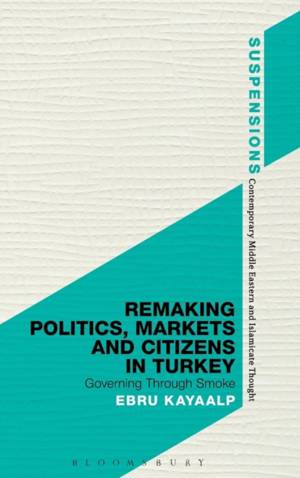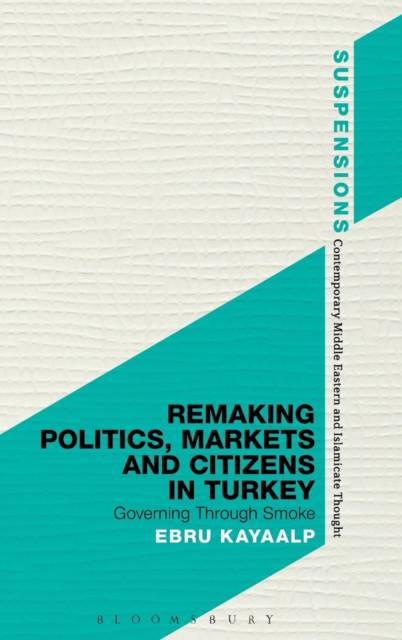
- Afhalen na 1 uur in een winkel met voorraad
- Gratis thuislevering in België vanaf € 30
- Ruim aanbod met 7 miljoen producten
- Afhalen na 1 uur in een winkel met voorraad
- Gratis thuislevering in België vanaf € 30
- Ruim aanbod met 7 miljoen producten
Zoeken
€ 322,45
+ 644 punten
Omschrijving
Remaking Politics, Markets and Citizens in Turkey critically analyses the travel of neoliberal ideas, policies, experts and institutions from the West to Turkey. Through an ethnographic investigation of the newly established tobacco market, Ebru Kayaalp considers how they are being adopted and transformed in their new settings.
The February 2001 crisis, the most severe economic downturn in the history of Turkey, generated an emergency situation in which a series of sweeping neoliberal policies were implemented to prop up the collapsed economy. To receive the necessary loans from the international financial institutions, the Turkish government hastily enacted a number of neoliberal laws, including the notorious tobacco law. Remaking Politics, Markets and Citizens in Turkey not only explores the repercussions of the new tobacco law, such as the establishment of a new regulatory institution, the emergence of contract farming and the privatization of the tobacco monopoly, thereby making a liberalized market, but also the smoking ban governing the bodies and spaces of Muslim citizens.
Remaking Politics, Markets and Citizens in Turkey provides an innovative contribution to Middle Eastern studies, filling the gap for anthropological research in Muslim countries on local economic relations and their connections with the global economy.
The February 2001 crisis, the most severe economic downturn in the history of Turkey, generated an emergency situation in which a series of sweeping neoliberal policies were implemented to prop up the collapsed economy. To receive the necessary loans from the international financial institutions, the Turkish government hastily enacted a number of neoliberal laws, including the notorious tobacco law. Remaking Politics, Markets and Citizens in Turkey not only explores the repercussions of the new tobacco law, such as the establishment of a new regulatory institution, the emergence of contract farming and the privatization of the tobacco monopoly, thereby making a liberalized market, but also the smoking ban governing the bodies and spaces of Muslim citizens.
Remaking Politics, Markets and Citizens in Turkey provides an innovative contribution to Middle Eastern studies, filling the gap for anthropological research in Muslim countries on local economic relations and their connections with the global economy.
Specificaties
Betrokkenen
- Auteur(s):
- Uitgeverij:
Inhoud
- Aantal bladzijden:
- 232
- Taal:
- Engels
- Reeks:
Eigenschappen
- Productcode (EAN):
- 9781472508737
- Verschijningsdatum:
- 12/02/2015
- Uitvoering:
- Hardcover
- Formaat:
- Genaaid
- Afmetingen:
- 156 mm x 234 mm
- Gewicht:
- 503 g

Alleen bij Standaard Boekhandel
+ 644 punten op je klantenkaart van Standaard Boekhandel
Beoordelingen
We publiceren alleen reviews die voldoen aan de voorwaarden voor reviews. Bekijk onze voorwaarden voor reviews.







